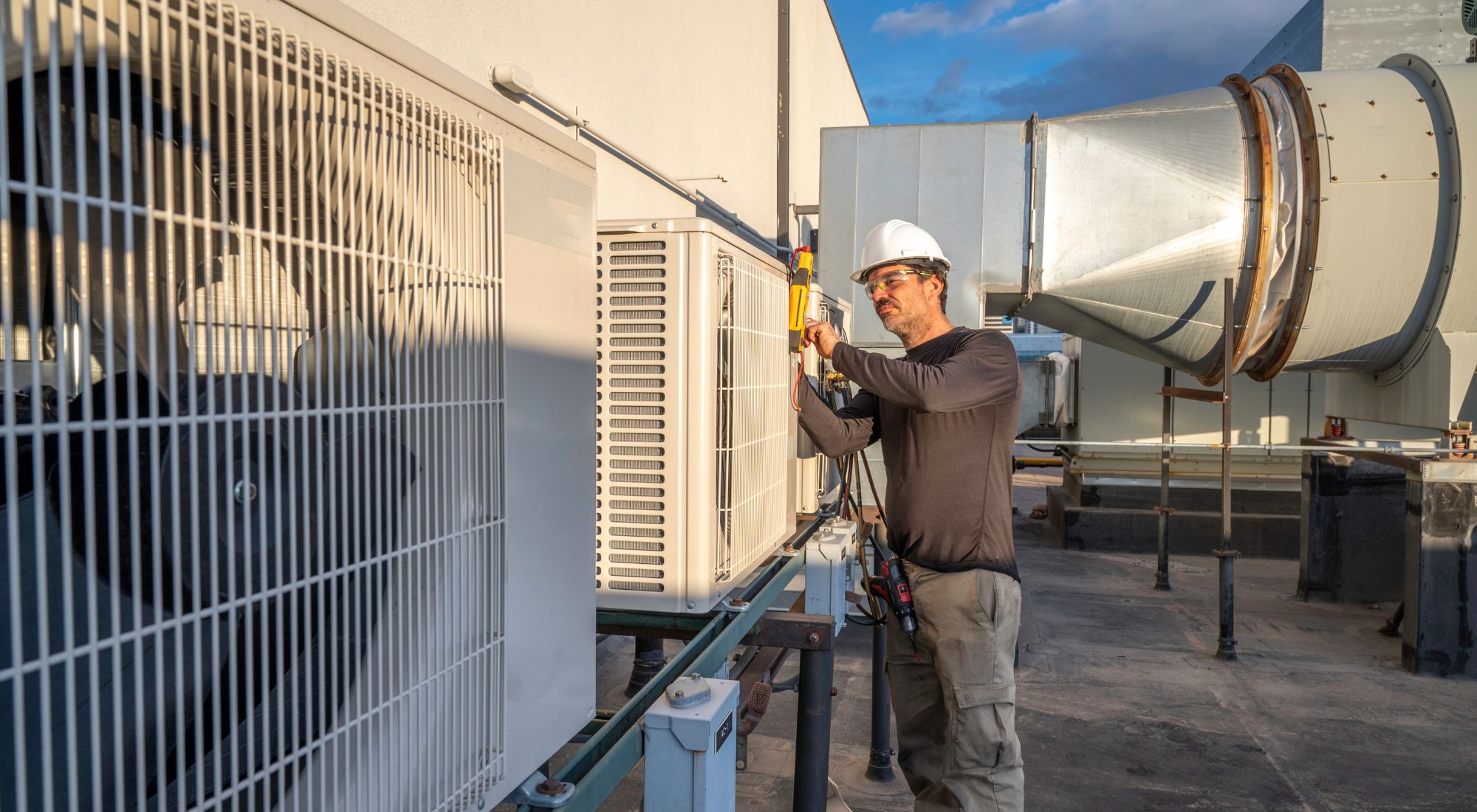Every business, whether a retail store, office space, or large-scale industrial facility, depends on a reliable HVAC system to maintain indoor comfort. Proper heating and cooling not only impact energy efficiency but also play a role in employee productivity and customer satisfaction. Commercial HVAC installation is a significant investment that requires careful planning, ensuring that the system is optimized for the specific needs of the building.
Why HVAC Matters in Commercial Spaces
In a business environment, temperature control is more than just a convenience—it’s a necessity. An inefficient system can lead to uncomfortable indoor conditions, resulting in dissatisfied employees and customers. On the other hand, a well-installed and properly maintained HVAC system offers several advantages:
- Energy efficiency: Reduces operational costs and minimizes waste.
- Consistent comfort: Maintains stable temperatures throughout the workspace.
- Air quality improvement: Enhances ventilation, removing pollutants and allergens.
- Equipment longevity: Proper installation and maintenance prevent premature system failures.
Factors to Consider Before Installation
Commercial HVAC installation is not a one-size-fits-all process. Business owners must consider multiple factors to ensure they choose the right system:
Building Size and Layout
A system that works efficiently in a small office may not be adequate for a large warehouse. Determining the correct capacity ensures consistent performance without overworking the unit. Undersized systems will struggle to maintain temperatures, while oversized units may short cycle, leading to increased wear and tear.
Zoning Requirements
Some commercial buildings have multiple zones requiring different temperature controls. For instance, restaurants have distinct heating and cooling needs for dining areas, kitchens, and storage rooms. Installing a zoning system can help regulate temperatures independently in different sections of the building.
Energy Efficiency Standards
Many businesses aim to reduce energy consumption. High-efficiency HVAC systems not only lower monthly energy bills but may also qualify for tax incentives and rebates. Look for units with high SEER (Seasonal Energy Efficiency Ratio) ratings and ENERGY STAR certification for the best energy performance.
Choosing the Right HVAC System
Several HVAC solutions exist for commercial properties, each with its own benefits and limitations. Selecting the right type depends on business needs and infrastructure.
Packaged HVAC Units
These are common in commercial settings because they house all heating and cooling components in a single unit, typically installed on a rooftop. Packaged units save indoor space, making them ideal for businesses with limited square footage.
Split Systems
A split system separates the heating and cooling components into indoor and outdoor units. These are suitable for buildings where different areas require independent temperature control.
VRF (Variable Refrigerant Flow) Systems
VRF systems offer advanced energy efficiency by adjusting refrigerant flow to different zones based on demand. They work well in large buildings with varying temperature needs across multiple spaces.
Minisplit Installations
For businesses requiring targeted heating and cooling, minisplit installations provide a flexible and efficient option. These systems work well for conference rooms, smaller office spaces, and areas that need independent climate control.
Installation Best Practices
A successful HVAC installation depends on proper planning and execution. Here are some best practices to follow:
1. Hire Professional Technicians
A commercial HVAC installation is complex and requires trained professionals with experience in large-scale systems. Improper setup can lead to efficiency problems and increased maintenance costs. Working with a reputable HVAC contractor ensures correct sizing, placement, and system balancing.
2. Conduct a Load Calculation
Accurate load calculations determine the system capacity needed to heat and cool a space effectively. Factors such as insulation, building materials, and occupancy levels affect load calculations.
3. Optimize Airflow and Ventilation
Ensuring proper airflow is essential to maintaining consistent temperatures and preventing moisture buildup. Poor ventilation can lead to humidity problems, increased energy consumption, and indoor air quality concerns.
4. Consider Future Scalability
Businesses expand over time, and HVAC needs may change. Investing in a system that allows for future upgrades or modifications can save costs in the long run.
Routine Maintenance for Long-Term Performance
Once an HVAC system is installed, ongoing maintenance is necessary to maintain efficiency and prevent unexpected breakdowns. Routine inspections should include:
- Filter replacements: Dirty filters reduce airflow and strain the system.
- Duct cleaning: Ensures proper air circulation and removes contaminants.
- Refrigerant checks: Prevents leaks that could reduce cooling performance.
- Electrical inspections: Ensures all connections are secure and components function correctly.
Regular servicing helps avoid costly repairs and extends the lifespan of the equipment.
Common Mistakes to Avoid
Many business owners unknowingly make mistakes when selecting and installing an HVAC system. Some common pitfalls include:
- Choosing the wrong size unit – Improper sizing leads to inefficiency and higher costs.
- Neglecting maintenance – A lack of servicing results in system failures and increased repair expenses.
- Ignoring indoor air quality – Poor ventilation can negatively affect employees’ health and productivity.
- Improper condenser installation – Outdoor units need sufficient airflow and clearance to operate effectively.
Elevate Heating & Cooling: Your Commercial HVAC Partner
Installing an HVAC system in a commercial building requires expertise and precision. Elevate Heating & Cooling provides professional commercial installation services, ensuring businesses receive efficient and reliable heating and cooling solutions. Whether it’s a new system setup, routine maintenance, or upgrades, choosing the right partner makes all the difference in maintaining indoor comfort and energy efficiency.
A well-designed and properly installed HVAC system contributes to lower operational costs, improved indoor air quality, and overall workplace comfort. By considering factors like system type, energy efficiency, and long-term maintenance, businesses can make informed decisions that benefit their operations for years to come.
Read More From Techbullion



































